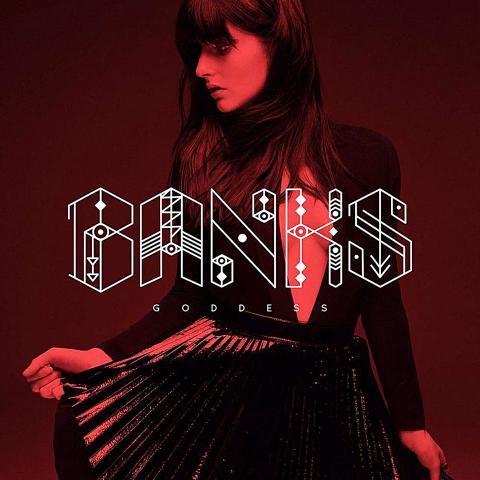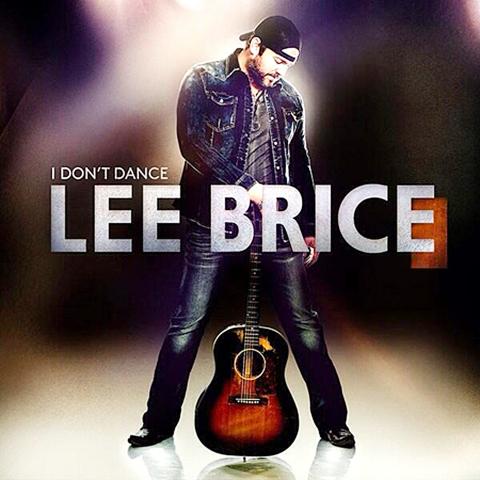Goddess
Banks
Hrvest

Romance demands warning labels on Goddess (Harvest), the debut album by Jillian Banks, the Los Angeles songwriter who simply calls herself Banks. “What if I said I would break your heart?/What if I said I had problems that made me mean?” she sings in You Should Know Where I’m Coming From, a dark piano hymn, then adds, “Maybe you can see that I just may be too crazy to love.” In Alibi, surrounded by synthesizer chords and twitchy programmed percussion, she realizes, “Something so warm turned out to be/Something that I should’ve known would be the death.”
And in Beggin for Thread, she almost boasts that “My words come out as a pistol, and I’m no good at aiming/But I can aim it at you.” But she adds, knowingly, “That’s why you wanna come out and play with me.”
In Banks’ songs, love is a desperate compulsion, a brutal addiction, a chance at fleeting comfort that’s likely to be followed by drawn-out psychological warfare. She portrays it from all sides: as the woman who knows her boyfriend is unjustly tearing her down but promises him “I’ll change I swear,” in Change; as a woman increasingly resentful of her lover’s dishonesty in Drowning; and, in Goddess, as someone gloating that a man should have treated the woman who left him as a goddess rather than a target.

The foundation of her music, which is most obvious in You Should Know Where I’m Coming From, is Fiona Apple’s somber, slow-chorded piano ballads, full of heartache, accusation, self-doubt and inward rage. But Banks has found a newer, richly compatible setting for her seething melancholy: the disembodied, suspended-time synthesizers of what has been labeled minimal R&B or future soul.
Banks emerged fully formed in 2013, with two EPs (all those songs reappear on the deluxe version of the album), a tour opening for Weeknd and a placement in a lingerie commercial. Fashionable as these productions are, they also suit Banks magnificently. She’s at the center of dramas that are built around her yet leave her isolated and untouched.
In the tracks by the English producer Lil Silva that dot the album, Banks’ reedy mezzo-soprano floats amid cavernous, throbbing bass tones that never have to breathe and artificial percussion sounds that stay inert and aloof. Waiting Game, a dirge about a “cursed” romance with another musician, was produced by Sohn, who’s a songwriter and singer himself. It begins by setting Banks amid wordless voices and a few sparse piano notes, opens an abyss with deep bass notes, then closes in with suffocating synthesizer chords and whizzing, menacing effects.
A few songs leave behind the programmed habitat; an acoustic guitar, of all things, carries the ballad Someone New. But out in a naturalistic realm, supported by the music rather than encased by it, Banks sounds more ordinary. She’s at her best facing down a sterile, indifferent universe.
— JON PARELES, NY Times News Service
I Don’t Dance
Lee Brice
Curb
Not much about I Don’t Dance, the third album by the country star Lee Brice, marks it as a battleground. It’s got familiar subject matter, and Brice is no radical, either in voice or in ideology.
And yet, this album — in places an awakening, in others a shrug — ends up as a referendum on the sort of star Brice has been developing into, and the seeming limitations thereof.
Start with the lovely, slightly tense title track, the song that’s helped catapult Brice over the last few months to a new level of renown. Written for his wife for their wedding, the song is a classic bait-and-switch: the tough guy crooning about how he doesn’t dance, except now he does, and doesn’t that just kill you?
This is the sort of weeping concrete Brice specializes in, from Hard to Love to I Drive Your Truck — the songs are sturdy, the mood aching. That’s a noble mode, and a lane Brice has almost wholly to himself in modern country.
But maybe it’s a lonely place, or an unsatisfying one, because this album uses that as a starting point and then veers in several other, more conventional directions: a tug of war for Brice’s soul.
In places, there is something hasty and unfocused about this album, a sense of grasping for something just a bit out of reach. The chorus of No Better Than This, about the awesomeness of summer, is unpleasantly howled. The verses of a couple of songs are sung quickly, and Brice sounds as if he might trip over his tongue. And he submits to the occasional meathead instinct, as on Girls in Bikinis. Even the heavy moralizing of Hard to Figure Out (the Airport Song), the sort of crooned contemplation Brice usually specializes in, feels leaden.
These feel like songs by a less-thoughtful singer, one who hasn’t figured out the keys to emotional masculinity. That guy emerges on songs like That Don’t Sound Like You, in which Brice tries to comfort a woman who’s lost her spark beneath the dark cloud of an ungrateful man.
And he’s there too on the album closer, Panama City, which from a distance feels like a weak concession to genre norms — teenagers frolicking in the sand, high on liquor and lust. But Brice sings it without any evident glee, only a scraped voice and a healthy gust of nostalgia. “I loved you as much as I could at 18,” he sighs, and it’s clear he’s grown up now, and knows too much. That’s more like it.
— JON CARAMANICA, NY Times News Service

June 2 to June 8 Taiwan’s woodcutters believe that if they see even one speck of red in their cooked rice, no matter how small, an accident is going to happen. Peng Chin-tian (彭錦田) swears that this has proven to be true at every stop during his decades-long career in the logging industry. Along with mining, timber harvesting was once considered the most dangerous profession in Taiwan. Not only were mishaps common during all stages of processing, it was difficult to transport the injured to get medical treatment. Many died during the arduous journey. Peng recounts some of his accidents in

“Why does Taiwan identity decline?”a group of researchers lead by University of Nevada political scientist Austin Wang (王宏恩) asked in a recent paper. After all, it is not difficult to explain the rise in Taiwanese identity after the early 1990s. But no model predicted its decline during the 2016-2018 period, they say. After testing various alternative explanations, Wang et al argue that the fall-off in Taiwanese identity during that period is related to voter hedging based on the performance of the Democratic Progressive Party (DPP). Since the DPP is perceived as the guardian of Taiwan identity, when it performs well,

A short walk beneath the dense Amazon canopy, the forest abruptly opens up. Fallen logs are rotting, the trees grow sparser and the temperature rises in places sunlight hits the ground. This is what 24 years of severe drought looks like in the world’s largest rainforest. But this patch of degraded forest, about the size of a soccer field, is a scientific experiment. Launched in 2000 by Brazilian and British scientists, Esecaflor — short for “Forest Drought Study Project” in Portuguese — set out to simulate a future in which the changing climate could deplete the Amazon of rainfall. It is

The Taiwan People’s Party (TPP) on May 18 held a rally in Taichung to mark the anniversary of President William Lai’s (賴清德) inauguration on May 20. The title of the rally could be loosely translated to “May 18 recall fraudulent goods” (518退貨ㄌㄨㄚˋ!). Unlike in English, where the terms are the same, “recall” (退貨) in this context refers to product recalls due to damaged, defective or fraudulent merchandise, not the political recalls (罷免) currently dominating the headlines. I attended the rally to determine if the impression was correct that the TPP under party Chairman Huang Kuo-Chang (黃國昌) had little of a